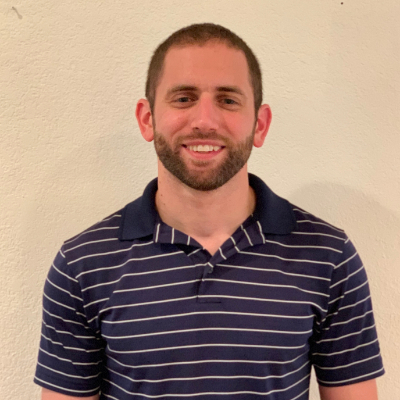Matt Ange, OTR, ACSM-EP is an occupational therapist, certified through the National Board for Certification in Occupational Therapy and the Texas Board of Occupational Therapy Examiners.
He obtained his undergraduate degree in kinesiology from Stephen F. Austin State University in Nacogdoches, TX. He then completed his Masters of Science degree in occupational therapy from Texas Tech University Health Science Center in Lubbock, TX.
Matt has spent most of his career working with persons who have obtained brain injuries, helping them to return to meaningful lives and activities. During this time, he has gained experience working with those who have visual deficits. He has interests in visual changes following a brain injury, mobility limitations due to visual impairment, assistive technology, improving independence in the home, and sports vision. He also is a certified exercise physiologist through the American College of Sports Medicine. He is a member of the American Occupational Therapy Association and the American College of Sports Medicine.
Matt’s hobbies include competing in triathlons, rock climbing, guitar, and hanging out with his wife and dog.
 Skilled Concussion Rehabilitation
Skilled Concussion Rehabilitation
Our occupational therapist is credentialed through the ImPACT concussion rehabilitation and management practice (ITOT). We utilize a multi-sensory approach and the latest research to guide our patient-centered treatments. Whether your goal is to get back to school, back to work, back in the game, or just to feel more confident doing the things you enjoy, we can help you get there.
ImPACT Applications have created a baseline and post-injury test that is widely used and scientifically validated. It is a computer-based test that evaluates multiple areas of a person’s neurocognitive abilities, such as visual-motor, memory, and processing speeds. The information obtained from this test can help with the development of an individualized treatment plan when combined with therapy sessions. It can also be taken before and after completion of therapy and used as a measuring tool to help show progress.


